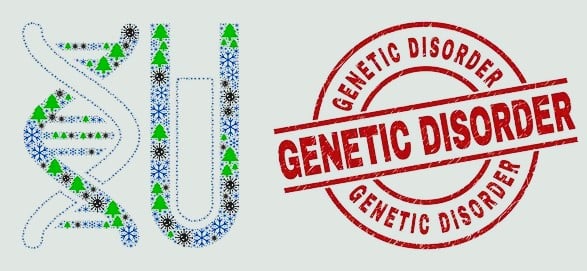Genetic Disorders: Causes, Symptoms, and Treatment
Learn about Genetic Disorders: their causes, symptoms, and treatment. Discover essential information to understand and manage these conditions in our comprehensive guide.


Genetic disorders are conditions that are caused by abnormalities in an individual's genes or chromosomes. These disorders can affect various aspects of a person's health, development, and overall well-being. Understanding the causes, symptoms, and treatment options for genetic disorders is crucial for individuals and their families.
Causes of Genetic Disorders
Genetic disorders can be inherited from one or both parents, or they can occur due to spontaneous changes in the genes or chromosomes. Some genetic disorders are caused by a single gene mutation, while others may involve multiple genes or complex interactions between genes and the environment.
Common causes of genetic disorders include:
Gene mutations: These are changes in the DNA sequence that can disrupt the normal functioning of a gene.
Chromosomal abnormalities: These occur when there are changes in the structure or number of chromosomes.
Inherited mutations: Genetic disorders can be passed down from parents who carry a mutated gene.
Environmental factors: Certain environmental factors, such as exposure to toxins or radiation, can increase the risk of developing a genetic disorder.
Symptoms of Genetic Disorders
The symptoms of genetic disorders can vary widely depending on the specific disorder and its impact on different body systems. Some genetic disorders are present at birth, while others may manifest later in life. Common symptoms of genetic disorders include:
Developmental delays or intellectual disabilities
Physical abnormalities, such as facial features or body structure
Chronic health conditions, such as heart disease or diabetes
Recurrent infections or immune system dysfunction
Neurological problems, including seizures or movement disorders
It is important to note that not all individuals with a genetic disorder will experience the same symptoms, and the severity of symptoms can also vary.
Treatment of Genetic Disorders
While many genetic disorders cannot be cured, treatment options are available to manage symptoms, improve quality of life, and prevent complications. The specific treatment approach will depend on the type and severity of the genetic disorder.
Treatment options for genetic disorders may include:
Medications: Certain medications can help alleviate symptoms or manage specific health conditions associated with the genetic disorder.
Physical therapy: This can help individuals improve their mobility, strength, and coordination.
Speech therapy: For individuals with speech or language difficulties.
Genetic counseling: This can provide individuals and families with information about the genetic disorder, its inheritance pattern, and available support services.
Surgical interventions: In some cases, surgery may be necessary to correct physical abnormalities or address complications.
It is important for individuals with genetic disorders to work closely with healthcare professionals to develop a personalized treatment plan that addresses their specific needs and goals.
Conclusion
Genetic disorders can have a significant impact on individuals and their families. Understanding the causes, symptoms, and treatment options for genetic disorders is essential for effective management and support. By staying informed and seeking appropriate medical care, individuals with genetic disorders can lead fulfilling lives and receive the necessary support to navigate the challenges associated with their condition.
